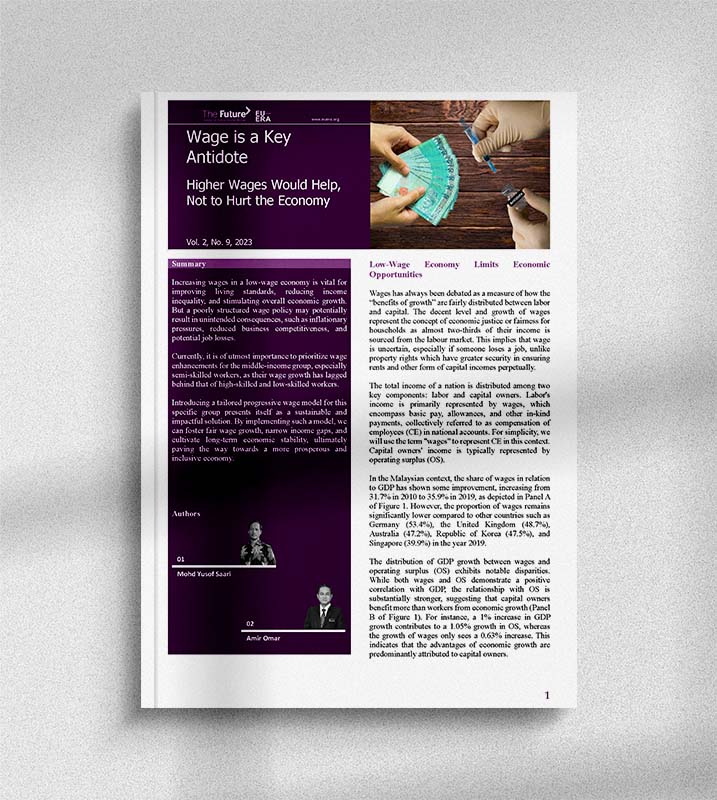Summary
Increasing wages in a low-wage economy is vital for improving living standards, reducing income inequality, and stimulating overall economic growth. But a poorly structured wage policy may potentially result in unintended consequences, such as inflationary pressures, reduced business competitiveness, and potential job losses.
Currently, it is of utmost importance to prioritize wage enhancements for the middle-income group, especially semi-skilled workers, as their wage growth has lagged behind that of high-skilled and low-skilled workers.
Introducing a tailored progressive wage model for this specific group presents itself as a sustainable and impactful solution. By implementing such a model, we can foster fair wage growth, narrow income gaps, and cultivate long-term economic stability, ultimately paving the way towards a more prosperous and inclusive economy.





